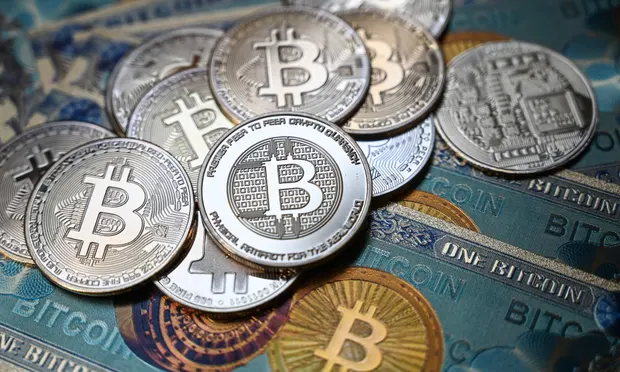Palau’s new digital residency programme could leave it open to crypto scammers and corruption, critics have warned, arguing that not enough due diligence has been done on the scheme.
The programme allows foreigners to buy an e-residency card which in turn allows them to start companies and sign documents, among other things. Most importantly, when the relevant legislation is passed, it will allow them to trade in cryptocurrencies, useful for residents whose countries, like China, do not allow it.
“For the first time in history, anyone in the world can participate in fundamental business and economic activities through Palau’s digital residency programme,” the president, Surangel Whipps, said at a virtual conference to launch the scheme last month.
The programme is an attempt to emulate Estonia, which launched its e-residency scheme in 2014. But critics say that programme has attracted cryptocurrency scammers and warn that small Pacific nations like Palau, whose tourism-reliant economy has been hit hard by the pandemic, may be vulnerable to exploitation by blockchain developers.
“Crypto developers are rarely drawn to struggling communities because they want to fix things,” Peter Howson, an expert on cryptocurrency at the University of Northumbria, said. “The research shows that these crypto developers are usually just looking for new punters, and performing real-world tests.
“There’s Palau’s image to consider too,” he added. “Palau’s worked super hard over recent years maintaining its image as a pristine paradise for conservation and nature tourism. There’s a danger the RNS [system administering the residency programme] will tarnish that brand, attracting any old Tom, Dick and Harry with dodgy investments looking for a safe haven to park their ill-gotten crypto assets.”
Palau’s lawmakers have been accused of rushing to approve the bill without much understanding of it.
“Even if it is a good deal, we should have done due diligence. Sometimes we take risks but we could be dealing with shady people,” the former president Johnson Toribiong said.
“We are putting our sovereignty and credibility on the line.”
The scheme – which is not the same as citizenship and does not allow e-residents the right to visit or reside in Palau – allows virtually anyone to pay a total of US$248 to receive a physical ID document as well as one in the form of a non-fungible token (NFT). Annual renewal costs US$100.
It is administered by Cryptic Labs, a blockchain research institute based in Palo Alto, California through its Root Name System (RNS).

“The software that’s been set up will make use of what banks use to background check people to allow them to open up bank accounts,” Whipps told the scheme’s virtual launch.
“So it’s going to be the same standard on how we screen people to become digital residents. And you have to renew it every year.”
But Palau’s Financial Institutions Commission (FIC), which regulates financial services, expressed concerns to Palau’s national congress that the level of flexibility it afforded the private partner in the operating agreement left Palau at a disadvantage.
“This is one-sided and skewed toward the private partner,” the FIC stated.
In addition, it’s not clear how much money Palau will make money from the scheme.
As of last Wednesday, the Ministry of Finance, which oversees the Digital Residency Office, confirmed it had collected US$71,000 from the more than 700 people who had received digital residency since the 02 February launch. About 40% of applicants were from the U.S, 30% from Europe, and another 30% from Asia, including China, it said.
Asked about the advantages the scheme would provide for the country, Whipps said: “I think the first step is getting the programme going. And then next is setting up the corporations to allow them to have companies in Palau able to transact business, then also look at setting up a crypto exchange, setting up other types of activities that can help a little bit of money and people.
“Digital residency offers a potential diversification of our economy, which is urgently needed in light of the pandemic’s effect on our tourism industry,” he added.
According to an August 2021 economic brief prepared by the Graduate School USA, which is funded by the U.S government, Palau’s total financing needs arising from Covid-19 will reach 36% of GDP, or US$86m – and that was before Omicron arrived.
Digital residents could also be an untapped source of new tourism for the island, the tourism minister, Ngirai Tmetuchl, said.
“We want to explore possible tourism opportunities: marketing to the members, networking, and investment from the members,” he said.
But Howson warned that Palau should be alert to potential pitfalls.
“We’re seeing Tonga, Vanuatu and Fiji get tempted by the tech bros from Silicon Valley too,” Howson said. “And these crypto people are using natural disasters to push these ideas on people without protest. Just look at Tonga, following the volcano, that’s the ideal time for these crypto folks to push through their ideas.
“Palauan’s are worried sick about Covid? Perfect time to implement NFT passports and money systems managed by some tech bros in Palo Alto! These crypto fixes have proved a Trojan horse for so many vulnerable communities. Palau should be wary,” Howson said.
SOURCE: THE GUARDIAN/PACNEWS













